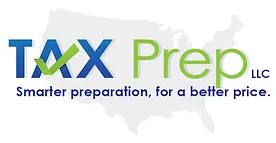As a small business owner in Washington DC, maximizing deductions is crucial for minimizing your tax liability and maximizing your bottom line. With tax laws constantly evolving, it’s essential to stay informed about available deductions and employ strategic planning to take full advantage of them. In this blog post, we’ll explore effective strategies for small businesses in Washington DC to maximize deductions and optimize their tax situation.
1. Keep Detailed Records:
The foundation of maximizing deductions for your small business starts with keeping detailed and accurate records of all business-related expenses. This includes receipts, invoices, bank statements, and other documentation supporting your deductions. By maintaining organized records throughout the year, you’ll be better prepared come tax time to identify and claim all eligible deductions.
2. Take Advantage of Section 179 Deduction:
The Section 179 deduction allows small businesses to deduct the full purchase price of qualifying equipment and property purchased or financed during the tax year. In 2024, the maximum deduction limit is $1.05 million, with a phase-out threshold of $2.62 million. By leveraging the Section 179 deduction, you can accelerate depreciation and reduce your taxable income significantly.
3. Explore Qualified Business Income Deduction (QBI):
The Qualified Business Income (QBI) deduction, also known as the Section 199A deduction, allows eligible small businesses to deduct up to 20% of their qualified business income from pass-through entities. This deduction can provide significant tax savings for small business owners, including sole proprietors, partnerships, S corporations, and certain LLCs. It’s essential to understand the eligibility criteria and limitations associated with the QBI deduction to maximize its benefits effectively.
4. Leverage Home Office Deduction:
If you operate your small business from a home office in Washington DC, you may be eligible to claim the home office deduction. This deduction allows you to deduct a portion of your home-related expenses, such as rent, mortgage interest, utilities, and insurance, based on the percentage of your home used exclusively for business purposes. Be sure to meet the IRS requirements for qualifying for this deduction and maintain detailed records to support your claim.
5. Deduct Business-related Travel and Entertainment Expenses:
As a small business owner, you may incur expenses related to business travel, meals, and entertainment. These expenses can be deductible if they are directly related to your business activities and meet the IRS criteria for deductibility. Be sure to keep detailed records of these expenses, including receipts, dates, and business purposes, to substantiate your deductions in case of an IRS audit.
6. Seek Professional Guidance:
Navigating the complexities of small business deductions can be challenging, especially with changing tax laws and regulations. Consider seeking professional guidance from a qualified tax advisor or accountant who specializes in small business taxation. A tax professional can help you identify all available deductions, optimize your tax strategy, and ensure compliance with IRS rules and regulations.
In conclusion, maximizing deductions is essential for small businesses in Washington DC to minimize tax liability and improve financial efficiency. By implementing these strategies and staying informed about available deductions, you can maximize tax savings and keep more of your hard-earned money in your pocket. Remember to consult with a tax professional to develop a customized tax strategy tailored to your business’s unique needs and goals.
If you need assistance with small business tax planning or compliance, don’t hesitate to reach out to DC Tax Prep. Our team of experienced professionals is here to help you navigate the complexities of small business taxation and achieve your financial objectives.


